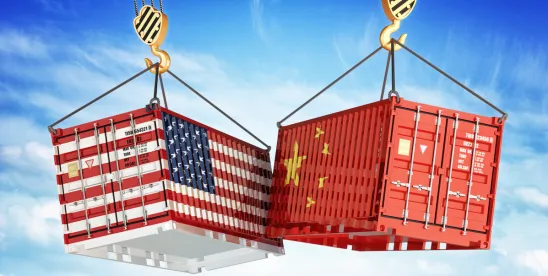While this expedited clearance process has been beneficial for many retailers, critics argue that it creates loopholes that can be exploited, particularly by foreign sellers, to bypass tariffs and import restrictions. Addressing US Congress’ inability to pass de minimis reform legislation, on September 13, the Biden-Harris Administration took decisive action to address these concerns. They announced a notice of proposed rulemaking aimed at reducing de minimis import volumes and strengthening trade enforcement through the following measures:
- Limiting De Minimis Exemptions for Products Subject to Other Trade Remedies: Removal of the de minimis exemption for shipments that contain products subject to additional tariffs under Sections 201 and 301 of the Trade Act of 1974 and Section 232 of the Trade Expansion Act of 1962 (e.g., from China).
- Increased Disclosure Requirements for De Minimis Shipments: Additional information would be required for de minimis shipments, including the 10-digit tariff classification and identification of the person claiming the exemption.
- Compliance Requirements for the CPSC: All importers of consumer products must file Certificates of Compliance (CoC) with the US Consumer Product Safety Commission (CPSC).
It is unclear when the proposed rule will be published.
The Administration also calls on Congress to implement legislation to further reform the de minimis program. Earlier this year, the House Ways and Means Committee introduced H.R. 7979 – End China’s De Minimis Abuse Act, which would similarly limit the use of this program for products subject to Sections 201, 301, and 232 and require a 10-digit Harmonized Tariff Schedule of the United States declaration. There have been several other de minimis reform bills proposed however, Congress has struggled to pass comprehensive legislation to reform the program. This announcement may be the push Congress needs to pass legislation during the lame duck session, but we will see…
Although these measures are primarily aimed at restricting Chinese e-commerce giants like Shein and Temu, these government actions could have long-term implications for direct-to-consumer sales. Any changes to the program will impact other US retailers that benefit from Section 321, small start-up companies, as well as consumers who might experience longer wait times and higher costs for their online orders due to these changes.
What’s the Problem?
Over the past decade, the rise of online shopping has led to a sevenfold increase in the number of shipments that enter the United States through the de minimis exemption. The US Department of Homeland Security (DHS) has reported that nearly 4 million de minimis shipments enter the United States per day. This volume makes it impossible for the government to properly screen the shipments for import violations. The government is concerned because contraband, including drugs, counterfeit goods, goods violating the Uyghur Forced Labor Prevention Act (UFLPA), and undervalued shipments are allegedly entering the United States through this program. DHS reported that as of July 30, 89% of cargo seizures in fiscal year 2024 originated as de minimis shipments. We have previously reported on proposed legislation and government actions aimed at addressing the alleged misuse of this program to import contraband or improperly declare shipments, particularly those originating from China.
A Focus on China
Most of these shipments are sold on e-commerce platforms and originate in China. As a result, many of these shipments would normally be subject to additional duties under the Section 232, 301, or 201 programs. According to the Administration’s announcement, Section 301 tariffs apply to 40% of US imports, including 70% of textile and apparel goods from China. The Administration’s proposed rule would significantly limit the scope of goods eligible for the Section 321 de minimis program.
Enhancing Transparency in De Minimis Shipments
To assist in targeting problematic shipments and expediting the clearance of lawful shipments, the Administration will also solicit comments on a proposed rule that would require submission of more detailed information in order to use the de minimis exemption. Currently, these shipments can be entered through informal entries by providing the bill of lading or a manifest that outlines the shipment’s origin, the consignee, and details about the merchandise’s quantity, weight, and value. The additional data points required would include the tariff classification number and the identity of the individual claiming the exemption. The Administration asserts that these requirements will protect US business from unfair competition against imported goods that would otherwise be subject to duties and will facilitate US Customs and Border Protection’s (CBP) ability to detect the illicit goods at the border.
Protecting Consumers From De Minimis Shipments
The Administration also announced that the CPSC plans to propose a final rule that would require importers of consumer products to electronically file CoC with CBP and CPSC upon entry, including de minimis shipments. This action is intended to prevent foreign companies from exploiting the de minimis exemption to circumvent consumer protection testing and certification requirements.
Focus on Textiles
The Administration has committed to prioritizing enforcement efforts to prevent importation of illicit shipments of textile and apparel imports through increased targeting of de minimis shipment, more customs audits and verification, as well as the expansion of the UFLPA Entity List.
The Administration’s focus on the textile and apparel industry follows DHS’s enforcement initiative to curb illicit trade to support American textile jobs. Since the DHS announcement in April, we have seen a notable increase in enforcement actions such as CBP requests for information, risk assessment questionnaires, and detentions under the UFLPA.
Potential Legislative Implications
The Administration has also advocated for further legislative action by Congress including:
- Exclusion of import-sensitive products such as textiles from the de minimis exemption, the exclusion of shipments containing products covered by certain trade enforcement actions, and the passage of previously proposed de minimis reforms.
- Legislation that would expedite the process of excluding products covered by Sections 301, 201, and 232 from the de minimis exemption.
- Reforms in the previously introduced Detect and Defeat Counter-Fentanyl Proposal, which would require more data from shippers under the de minimis program and strengthen the CBP’s ability to detect and seize illicit drugs and raw materials.
What This Means for Retailers and How We Can Help
The Administration’s notice of proposed rulemaking suggests that changes to the de minimis program are on the horizon. For e-commerce retailers, these changes could mean a shift in how they manage their imports. Stricter eligibility criteria and enhanced enforcement may require more diligent documentation and compliance efforts. Retailers should stay informed about these proposed changes and prepare to adapt their operations accordingly.




 />i
/>i

